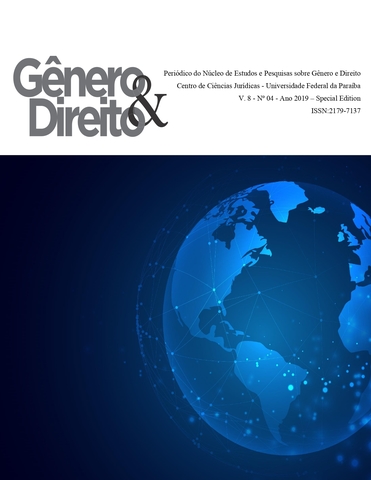METHODICAL APPROACHES OF THE INTERCULTURAL COMPETENCE FORMATION OF FUTURE ECONOMISTS
DOI:
https://doi.org/10.22478/ufpb.2179-7137.2019v8n4.48426Palavras-chave:
intercultural competence, competence, future economists, intercultural communication, foreign language, higher education, English language learningResumo
The paper represents the results of conducted experiments on the formation of intercultural competence among undergraduate economics students of Kazan Federal University (Russia). Aimed at describing the advantages of the intercultural competence formation approach, the article focuses on the evidence of competence-based approach’s effectiveness in the formation of intercultural competence. The business games, projects, discussions, brainstorming, and simulation games were used as the methods of the formation of the intercultural competence. Both a linguistic and a cultural components have become increasingly important in the personality of an international level modern economist. In addition to knowledge in the professional field, future economist needs to possess cultural, sociocultural knowledge and skills that allow him to adequately represent himself in situations of intercultural communication. This problem is widely discussed these days due to the active growth of theoretical and practical interest in issues of intercultural communication. The introduction of a two-level education system (bachelor's and master's degrees) in Russia entails a considerable number of changes, including creating courses related to the world economy in a foreign language. These programs must be compiled in accordance with the federal state standards of the generation 3+ and must be implemented in the professional training of future economists at the Institute of Management, Economics and Finance of the KFU. Hence, there is a need to increase the level of intercultural competence of future specialists in the economy field and the need for pedagogical theory and practice in the formation of intercultural competence of students in the process of teaching a foreign language at a university.Downloads
Referências
Albina R. Abdrafikova, Rimma M. Akhmadullina & Tatiana S. Pimenova. Professional Adaptation of Students as Future Teachers Using Case Study Technology / Albina R. Abdrafikova, Rimma M. Akhmadullina & Tatiana S. Pimenova // Research Journal of Applied Sciences. - 2015. - Volume 10 (Issue 10). - PP. 643-647. - ISSN: 1815-932X
Chiu, Chi-Yue, Lonner, W. J, Matsumoto, D., Ward, C., Cross-Cultural Competence: Theory, Research, and Application. Journal of Cross-Cultural Psychology, vol. 44, issue 6, pp 843-848, 2013.
Deardorff D.K., Identification and assessment of intercultural competence as a student outcome of internationalization. Journal Studies in International Education, vol. 10, issue 3, pp 241-266, 2006.
Fahrutdinova R.A, Yarmakeev I.E, Fakhrutdinov R.R., The formation of students` foreign language communicative competence during the learning process of the English language through interactive learning technologies (The study on the basis of Kazan Federal University)//English Language Teaching. - 2014. - Vol.7, Is.12. - P.36-46.
Federal state educational standard of higher professional education for the training (qualification: bachelor of economics) [Electronic resource] / access Mode: http://mon.gov.ru/dok/. 23.03.15 checked.
Gorelova J.N., Advertising language as a means of forming students' cross-cultural competence, Procedia - Social and Behavioral Science, vol.152, pp.668-672, 2014.
Kramsch C., The language teacher as go-between. Utbildning & Demokrati, vol. 13(3), pp 37-60, 2004.
L.Salekhova, K.Grigorieva Russia country report: multicultural experience in education //11th international technology, education and development conference, Valencia, Spain, 6-8 march, 2017, pp. 0435-0441.
Sinicrope C., Norris J., Watanabe Y., Understanding and assessing intercultural competence: A summary of theory, research, and practice, 2012
The work is performed according to the Russian Government Program of Competitive Growth of Kazan Federal University.
Yarmakeev Iskander E., Abdrafikova Albina R., Pimenova Tatiana S., Eshenko Ekaterina Yu. Students' tolerance formation in multiethnic educational environments in efl class // modern journal of language teaching methods. - 2016. - vol. 1. - p. 170-177

